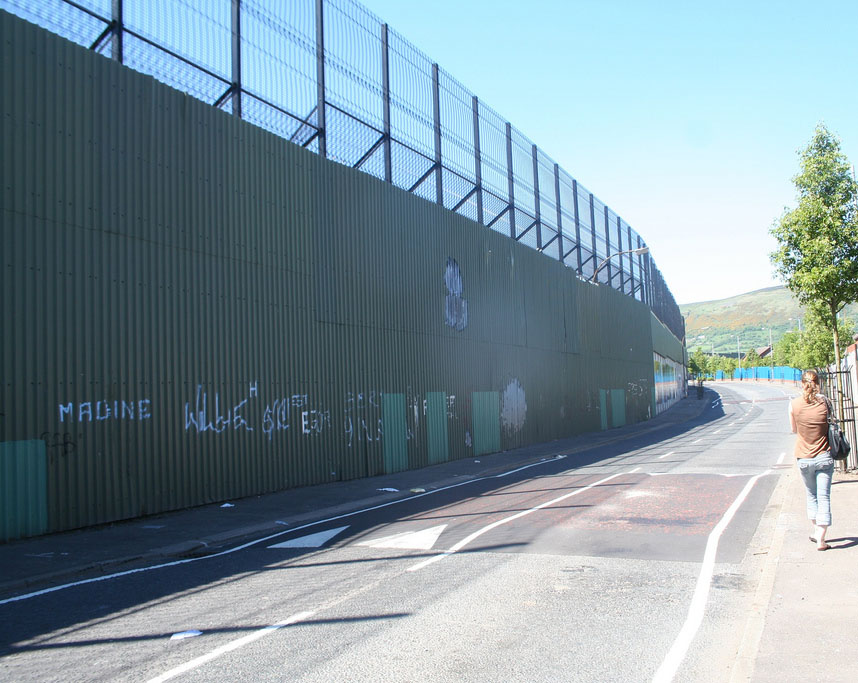
Has peace been given a chance? Northern Ireland and 25 years since the Good Friday Agreement
Has peace been given a chance? Northern Ireland and 25 years since the Good Friday Agreement
The history of Northern Ireland is often characterised by episodes of violence that emerged between militant nationalist groups and loyalist paramilitary groups, that led to a tumultuous period of conflict known as ‘The Troubles’ from the 1960s. This period eventually led to the signing of the peace agreement and ceasefire in 1998 known as the Good Friday/ Belfast Agreement. The signing of this agreement was no easy task, with civil society organisations, religious leaders and politicians being engaged in all parts of the lengthy process. The agreement did, however, prove the ways in which civil society organisations and religious actors can make measurable gains in conflict transformation. 25 years on, however, Northern Ireland society may no longer be characterised by direct violence, bombs, and militant activity, but beneath the signing of a peace agreement, another reality lies. Structural violence in terms of transgenerational trauma, socioeconomic deprivation, and being held as the bargaining chip in post-Brexit United Kingdom continue to leave its mark on Northern Ireland. Reflecting on this anniversary begs us to ask if peace really has been given a chance.
Religious actors and civil society organisations contribution to peace
The Good Friday Agreement, signed on 10 April 1998, is an agreement that has long been used as an exemplary model for peacebuilding, that managed to put an end to a violent conflict between opposing communities. The agreement was a pact between unionist and nationalist leaders that would lead to a new power-sharing government. However, it was not only political leaders that were implicit in the lead up and the signing of this momentous agreement.
In the midst of religious and political divisions that fuelled The Troubles, religious leaders emerged as beacons of hope and reconciliation. Religious leaders acted as mediators and interlocutors, engaging in direct talks and facilitating discussions between conflicting factions, being uniquely positioned as trusted figures in their community to engage in this role. The most remembered in this light was Father Alec Reid, who not only spoke of values of peace and conflict transformation but played a key role in the early days of the peace process. He ferried messages to and from Republicans and the British and Irish governments and acted as an independent witness during the decommissioning of the IRA’s arsenal of weapons. Further, he is remembered for the emotive image of him performing the last rites over the bloodied corpse of a British soldier who had been attacked by a republican mob during the height of the Troubles.
Religious grassroots groups such as Corrymeela in County Antrim contributed to the promotion of peace and inter-faith dialogue within religious networks, by organising dialogue and problem-solving workshops, conflict analysis and mediation training. Corrymeela continues their work today. Further, Evangelical Contribution on Northern Ireland (ECONI) cut across religious boundaries by seeking to influence political attitudes more directly. After the 1994 ceasefire, ECONI organised a Christian citizenship forum, bringing together Christians who identified as nationalists, and unionists, to have their voice heard on the topic of Christian citizenship in Northern Ireland. The transformative role religious actors can play in conflict resolution is of course, not limited to Northern Ireland.
Women’s groups such as Women Together, founded in 1970, united women across religious binaries to stand in solidarity against paramilitary groups and violence. They brought together women to share their experiences and posit new hope for a society free from direct violence. Like the methods of reconciliation and peacebuilding implored by Corrymeela, the women began workshops and focus groups training women in mediation, holding seminars and public speaking initiatives, challenging sectarianism, racism and utilising constructive energy from the conflict to build on conflict transformation.
Further, the work of religious actors and civil society organisations did not cease after the signing of the Good Friday Agreement. They evolved to address the challenges of building a lasting peace, and continue to promote social cohesion by operating at a grassroots level. Organisations such as Rethinking Conflict, set up by Rev. Dr. Gary Mason in 2015, continue the ongoing work in the Irish peace process, delivered through ‘building peace and reconciliation at the sharper, more fractured edges of society’. Gary served as the Methodist representative on the Loyalist Commission, a group consisting of loyalist paramilitaries, community activists and church representatives. The work of this organisation is not only confined to the Irish context, but rather lessons from the Irish peace process are shared further afield, in the United States and Middle East.
Additionally, The Community Relations Council (CRC) supports community groups and initiatives that aim to build positive relationships and understanding between different communities in Northern Ireland. Healing Through Remembering focuses on dealing with the legacy of the conflict in Northern Ireland and encouraging dialogue and understanding about the events of the past. WAVE Trauma Centre, aims to provide support to those who have been affected by the violence, through counselling, advocacy and community engagement. EXTERN hosts anti-sectarianism projects with young people across Belfast to tackle sectarianism. Civil society organisations, ranging from community-based groups to human rights advocates, have played and continue to play a crucial role in addressing the root causes of conflict and promoting social cohesion by operating at grassroots level.
Violence is still manifest
25 years since the signing of this historic agreement, the post-conflict landscape in Northern Ireland, is still painfully evident. Northern Ireland still grapples with the psychological impact left by The Troubles, post-traumatic stress, inequality and social segregation. Northern Ireland is also reported to have the highest suicide rate in the United Kingdom, and the 2020 Youth Wellbeing Prevalence Survey found that 1.5 per cent of young people have post-traumatic stress disorder. Further, in 2021 it was reported that Northern Ireland had the highest rates of domestic violence per capita in Western Europe. A “Peace wall” still separates the two communities, and murals are rife with imagery of a time in which bloodshed paved the streets. Brexit, triggered fears of isolation and uncertainty for some, and for others offered a glimpse toward the possibility of a united Ireland. Only two years ago, Belfast witnessed several nights of violent rioting and civil unrest that exposed the fragility of peace agreements and a peace wall that does more to heighten differences, rather than overcome. Hundreds gathered on both sides of the peace wall, tossing petrol bombs and fireworks toward their neighbours. Images of a Belfast that were thought to be a thing of the past, emblazoned with flames and destruction, flooded local and international news, as the cause of the riots was said to be triggered by Brexit negotiations, anger with the police and worsening relations within the power-sharing government. The main participants in the violence were reported to be young people from working class communities from both sides of the political spectrum – communities that continue to grapple with unemployment, poverty and poor educational outcomes.
What should the next era of peacebuilding look like?
The GFA undoubtedly signed a new chapter in Northern Irish history – making measurable gains in peacebuilding and anti-sectarianism. Religious and grassroots peacemakers were successful in dealing with the conflict by creating spaces in which members from each part of the community could feel safe, reconcile, and listen. It is true that the generation of today, have grown up in a very different Northern Ireland than their parents – there has been a considerable reduction in sectarian attitudes, paramilitary violence and unrest does not pave the streets, and a new era of hope has been carved out.
The next task for peacebuilders should be to continue the work of grassroots, local level groups, engage the new generation and respond effectively to the new challenges that face Northern Ireland. New waves of fear, political unrest and societal discomfort have been triggered by a post-Brexit climate which could undermine the progress achieved by the Good Friday Agreement. Working toward a sustainable peace, must include cutting across religious, gender, ethnic and political divides to continuously advocate for the maintenance of peace, and to address the scars left by the Troubles, not only culturally and politically, but also psychologically and economically.
Megan Gethin is an Irish citizen and Communications Officer at AP. Her background specialises in sociology of religion, secularism, and religious approaches to peacebuilding.






























